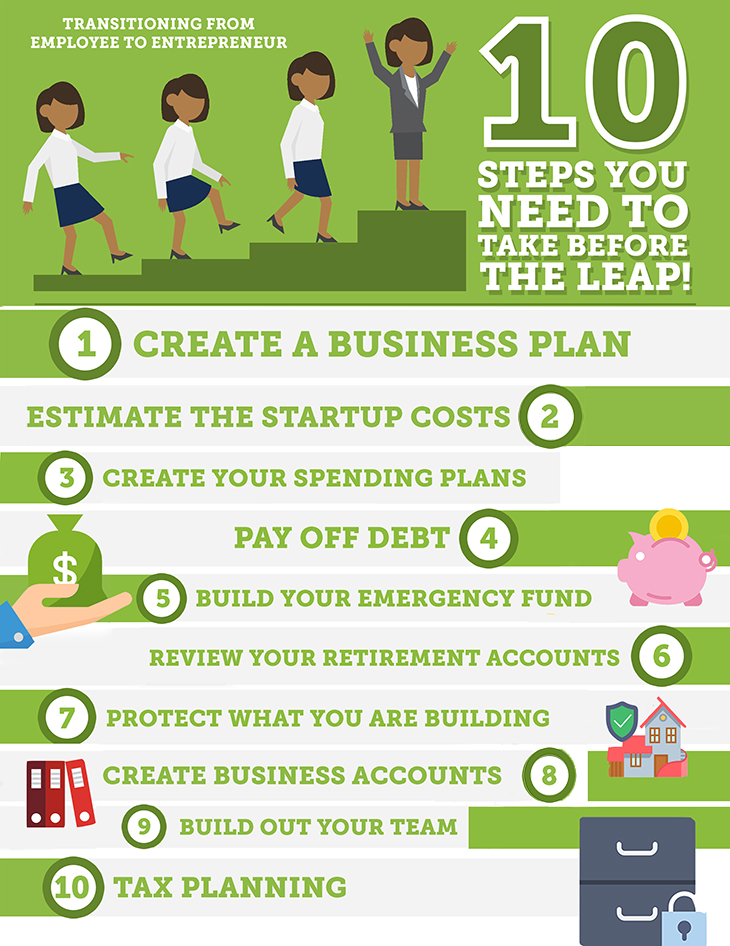As an entrepreneur, you wear many hats — visionary, technician and manager. But you must not let the hustle and bustle of your business steer you away from having a solid financial foundation. Showing discipline with your personal finances will strengthen your success with your business finances. A few basic initial steps can be taken when making the transition from employee to entrepreneur.
In addition to creating a business plan, you need to begin by figuring out the expected expenses for your particular field. There are also some common expenses for which you can prepare, such as fees to incorporate, costs of bookkeeping software and various forms of insurance you may be leaving behind with your former job.
Next, create two spending plans: What your expenses and cash flow look like today, versus what they may look like when you start your company and are living off reduced income and savings.






